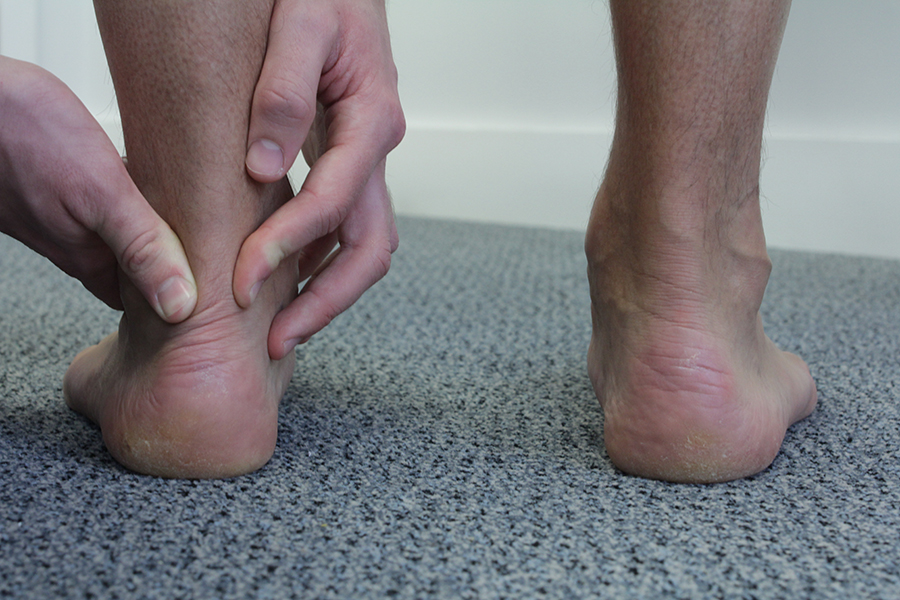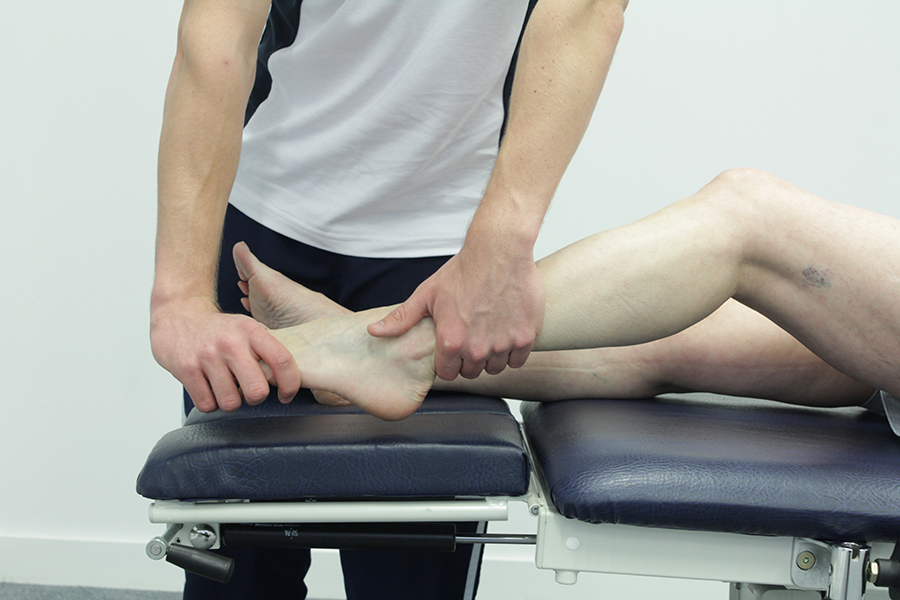Complete tear of the achilles tendon
A completely torn Achilles tendon is an injury in which the Achilles tendon snaps. When the Achilles tendon snaps the calf muscle is no longer attached to the heel bone.
If you have torn your Achilles tendon podiatry can help you following surgical intervention. Podiatric treatment aims to improve the function of the ankle and Achilles tendon so that any residual pain and stiffness is reduced, and future injury is prevented.
A complete tear of the Achilles tendon, or tendon rupture as it is also known, is when the Achilles tendon is completely torn so that the calf muscle and the heel bone are no longer connected.
The Achilles tendon is the strongest tendon in the body. The Achilles tendon comes from the calf muscles at the back of the leg, passes down the back of the ankle, and connects at the heel bone.
A complete tear of the Achilles tendon can occur for a number of reasons, however, any action or activity that places excessive stress onto the tendon increases the risk. The Achilles tendon may tear completely following a trauma which cuts or tears the Achilles tendon in two.
A weak Achilles tendon is more susceptible to tearing because it is unable to withstand the forces exerted on it. Those who are more prone to Achilles tendon rupture caused by weakness include:

The signs and symptoms of a complete tear of the Achilles tendon include the following:
A completely torn Achilles tendon is diagnosed based on your account, and an examination of the ankle and Achilles tendon. A positive Thompson test is diagnostic of a completely torn Achilles tendon.
If you have torn your Achilles tendon it is important that it is diagnosed and treated quickly in order to promote healing. If you have torn your Achilles tendon the first line treatment is A&E so that the Achilles tendon can be either cast or operated on to reattach it.
If you suspect that you have ruptured your Achilles tendon it is important that you do not put weight on it.
Podiatric intervention is suitable if you have torn your Achilles tendon following immobilisation or surgical intervention.
Podiatry can benefit you if you have torn your Achilles tendon by:
At Manchester Podiatric treatment for a complete tear of the Achilles tendon is subject to a biomechanical assessment. The results of the biomechanical assessment will give the podiatrist the necessary information to formulate an appropriate treatment plan. The aim of treatment for a ruptured Achilles tendon is the reduction of pain and an improvement in foot function.
Chiropody.co.uk may prescribe the following treatments for a completely torn Achilles tendon once any surgical intervention or casting has taken place:

A complete tear of the Achilles tendon occurs when the Achilles tendon, which is positioned at the back of the ankle, tears completely in two. An Achilles tendon that is completely torn means that the heel bone and the calf muscle are not attached. If you have torn your Achilles tendon you will be in a lot of pain and will find walking difficult, it is therefore important that a torn Achilles tendon is diagnosed and treated promptly. Podiatry can help you if you have torn your Achilles tendon once the tendon has healed. The aim of podiatric treatment following a completely torn Achilles tendon is reduced pain and improved function, all of which improve gait and posture and prevent future injury.
To book an assessment please email office@chiropody.co.uk or call 0330 088 4222.
If you have torn your Achilles tendon podiatry can help you following surgical intervention. Podiatric treatment aims to improve the function of the ankle and Achilles tendon so that any residual pain and stiffness is reduced, and future injury is prevented.
What is a complete tear of the Achilles tendon?
A complete tear of the Achilles tendon, or tendon rupture as it is also known, is when the Achilles tendon is completely torn so that the calf muscle and the heel bone are no longer connected.
The Achilles tendon is the strongest tendon in the body. The Achilles tendon comes from the calf muscles at the back of the leg, passes down the back of the ankle, and connects at the heel bone.
What causes a complete tear of the Achilles tendon?
A complete tear of the Achilles tendon can occur for a number of reasons, however, any action or activity that places excessive stress onto the tendon increases the risk. The Achilles tendon may tear completely following a trauma which cuts or tears the Achilles tendon in two.
A weak Achilles tendon is more susceptible to tearing because it is unable to withstand the forces exerted on it. Those who are more prone to Achilles tendon rupture caused by weakness include:
- People who have had steroid injections into the Achilles tendon
- People who have undergone long term treatment with steroids
- Those who have a medical condition in which the body creates too much steroid (e.g. Cushing's syndrome)
- People with Achilles tendonitis
- People who participate in activities and sports who do not adequately stretch the calf and Achilles tendon
- People with tight or weak calf muscles
- People who have flat feet
- Improper or worn footwear
- People who have inflammatory conditions (e.g. Rheumatoid arthritis)
- Middle aged and elderly people (middle aged athletes most at risk)
- Overuse

What are the signs and symptoms of a complete tear of the Achilles tendon?
The signs and symptoms of a complete tear of the Achilles tendon include the following:
- At the time of injury a 'snap' or 'pop' may be heard
- Sudden onset of pain at the back of the ankle
- Unable to stand on tip toes
- Swelling and bruising at the back of the ankle
- Difficulty/inability to walk
How is a complete tear of the Achilles tendon diagnosed?
A completely torn Achilles tendon is diagnosed based on your account, and an examination of the ankle and Achilles tendon. A positive Thompson test is diagnostic of a completely torn Achilles tendon.
If you have torn your Achilles tendon it is important that it is diagnosed and treated quickly in order to promote healing. If you have torn your Achilles tendon the first line treatment is A&E so that the Achilles tendon can be either cast or operated on to reattach it.
If you suspect that you have ruptured your Achilles tendon it is important that you do not put weight on it.
Benefits of podiatry for a complete tear of the Achilles tendon?
Podiatric intervention is suitable if you have torn your Achilles tendon following immobilisation or surgical intervention.
Podiatry can benefit you if you have torn your Achilles tendon by:
- Improving upon the mechanics of your leg and foot
- Improving gait and posture
- Increasing the flexibility of the Achilles tendon and calf muscle
- Increasing the range of motion at the ankle joint
- Decreasing the tension on the Achilles tendon
- Decreasing painful symptoms
What would podiatry for a complete tear of the Achilles tendon involve?
At Manchester Podiatric treatment for a complete tear of the Achilles tendon is subject to a biomechanical assessment. The results of the biomechanical assessment will give the podiatrist the necessary information to formulate an appropriate treatment plan. The aim of treatment for a ruptured Achilles tendon is the reduction of pain and an improvement in foot function.
Chiropody.co.uk may prescribe the following treatments for a completely torn Achilles tendon once any surgical intervention or casting has taken place:
- Heel raise
- Orthoses
- Stretching Programmes
- Strengthening Exercises
- Ultrasound
- Soft tissue treatment
- Advice and education
- Footwear review

Summary
A complete tear of the Achilles tendon occurs when the Achilles tendon, which is positioned at the back of the ankle, tears completely in two. An Achilles tendon that is completely torn means that the heel bone and the calf muscle are not attached. If you have torn your Achilles tendon you will be in a lot of pain and will find walking difficult, it is therefore important that a torn Achilles tendon is diagnosed and treated promptly. Podiatry can help you if you have torn your Achilles tendon once the tendon has healed. The aim of podiatric treatment following a completely torn Achilles tendon is reduced pain and improved function, all of which improve gait and posture and prevent future injury.
To book an assessment please email office@chiropody.co.uk or call 0330 088 4222.
Save 5% by booking an appointment online.

Find your nearest clinic
We have clinics located throughout the North West. We also provide a home visit service.
Find out more »

No waiting lists!
Tired of waiting for treatment? Be seen by a podiatrist today!
Find out more »

Not sure how we can help?
Speak to a podiatrist to find out how we can help. Call us on 0330 088 4222.
Find out more »
We work with:

Individuals

Organisations

Health professionals
Get in Touch!
0330 088 4222
If you would like to speak to one of our specialists then please complete this form.
We are open 7 days a week








